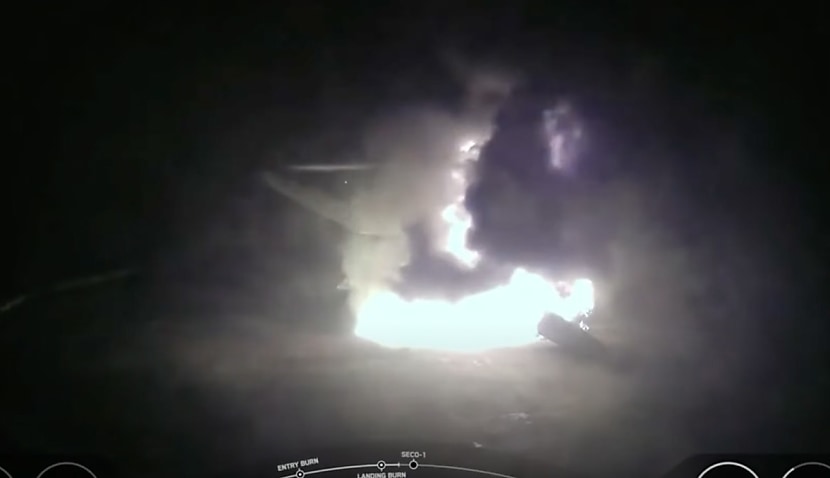
The incident occurred after SpaceX successfully launched the Starlink Group 8-6 mission from Cape Canaveral on 28 August, deploying 21 Starlink satellites into orbit.
SpaceX has confirmed via X that the first stage booster “tripped over” after landing on a droneship off the coast of Cape Canaveral, which is used to recover the rocket’s booster.
Footage of the landing showed the booster engulfed in flames before falling. The booster has previously conducted 23 launches.
While the FAA has confirmed that no injury or property damage occurred as a result of the failure, it will require an investigation.
“A return to flight of the Falcon 9 booster rocket is based on the FAA determining that any system, process, or procedure related to the anomaly does not affect public safety,” an FAA statement read.
“In addition, SpaceX may need to request and receive approval from the FAA to modify its licence that incorporates any corrective actions and meet all other licensing requirements.”
Taking to social media, SpaceX confirmed it cancelled its second scheduled launch of the day pending an analysis of booster landing data.
The mission was originally scheduled for launch on Tuesday, though unfavourable weather conditions prompted SpaceX to reschedule the flight.
It comes as NASA revealed the ‘stranded’ Starliner crew on the ISS will return to Earth with SpaceX in February.
The space agency said returning Sunita “Suni” Williams and Barry “Butch” Wilmore onboard the Boeing spacecraft was too risky as engineers still hadn’t fully deduced what went wrong with its thrusters.
The news means Starliner will now return to Earth without crew early next month, while two of the four astronauts originally due to blast off on the upcoming SpaceX Crew-9 mission will lose their seats.
After a series of delays, Starliner finally blasted off to the ISS in June on its historic first crewed mission. The spacecraft was due to come back after just a week, but issues with both the thrusters and helium leaks mean their stay will now extend to eight months.

Liam Garman
Liam began his career as a speechwriter at New South Wales Parliament before working for world-leading campaigns and research agencies in Sydney and Auckland. Throughout his career, Liam has managed and executed a range of international media and communications campaigns spanning politics, business, industrial relations and infrastructure. He’s since shifted his attention to researching and writing extensively on geopolitics and defence, specifically in North Africa, the Middle East and Asia. He holds a Bachelor of Commerce from the University of Sydney and is undertaking a Masters in Strategy and Security from UNSW Canberra.
Receive the latest developments and updates on Australia’s space industry direct to your inbox. Subscribe today to Space Connect here.












